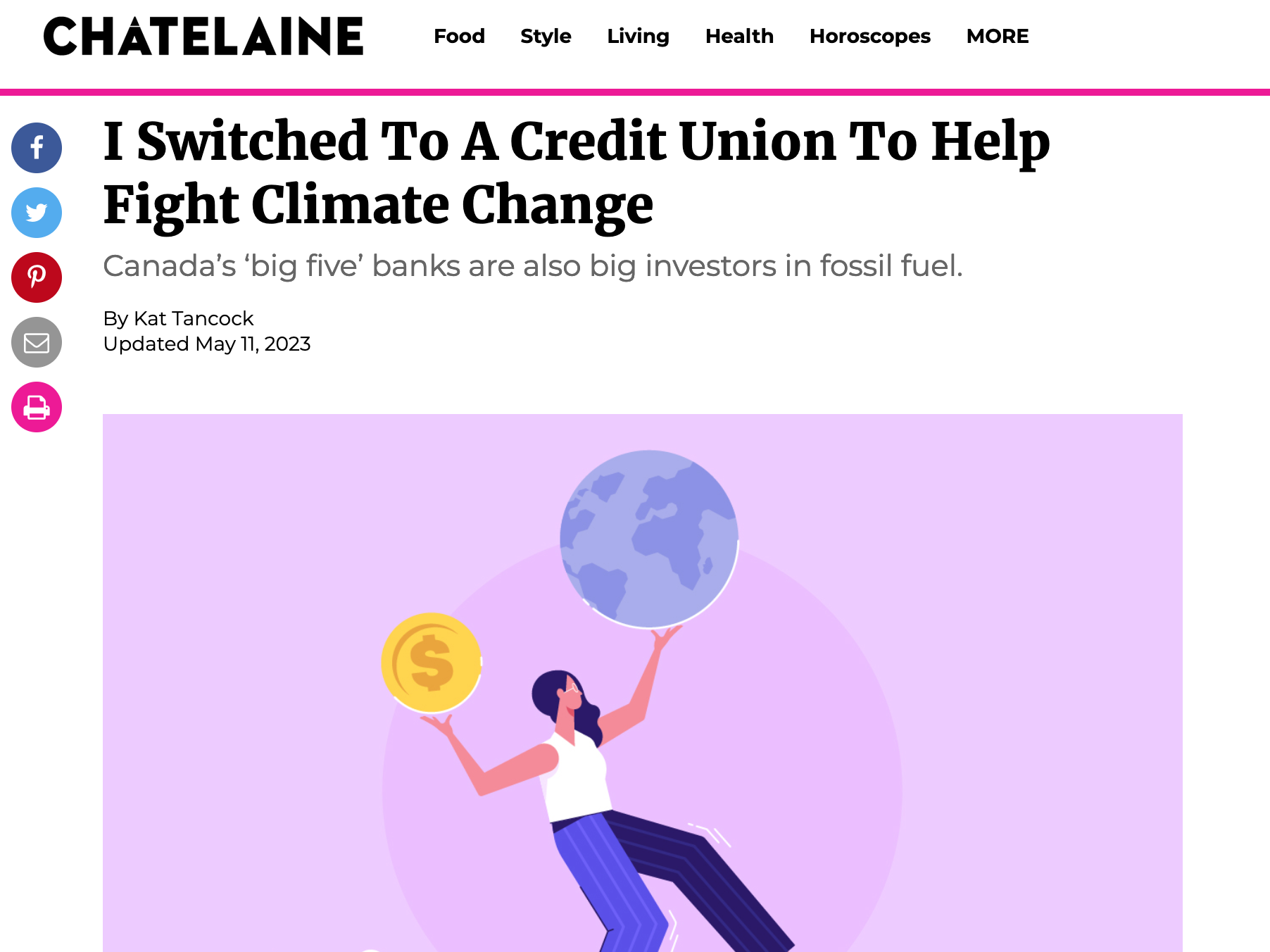Chatelaine disses RBC over climate, Indigenous rights harms

Chatelaine calls itself as “Canada’s largest women’s brand” and its lifestyle magazine has been a stalwart of the Canadian media industry since the 1920’s. That’s why it’s a big deal to see them bring the message about RBC’s harmful investments in fossil fuels and projects that harm Indigenous people’s to hundreds of thousands of people.
In an article published today called “I switched to a credit union to help fight climate change” the authour says:
It turns out that Canada’s “big five” banks—that includes RBC as well as TD, Scotiabank, BMO and CIBC, in declining order of how much money they make—are big investors in fossil fuel projects. In 2022, out of all the world’s banks, RBC was the largest investor in fossil fuels on Earth.
If, like me, you believe we need to transition off fossil fuels ASAP to avoid the worst effects of climate change—which, let’s be honest, are already getting bad—these numbers might not make a lot of sense. Yes, some of that money helps create jobs and goes into local economies. But at what cost?
She was also savvy in response to RBC’s self-interested greeenwash:
To get their perspective for this article, I got in touch with RBC’s communications department and asked if I could speak with someone about their policies on fossil fuel investment. Instead, I received a reply to my questions via an email. The gist: Don’t worry, climate change is a big deal but RBC is on it, and while we’re aiming for net-zero eventually, and we’re investing in clean energy, we need fossil fuels to fill the gap.
“The transition will not happen overnight—without risking significant harm and disruption to lives and livelihoods.”
I mean, sure. I agree that cutting fossil fuel use down to zero tomorrow would cause chaos. But if you ask me, RBC really seems to be trying to have its cake and eat it too…thanks to our rampant and still-growing fossil fuel use, climate change is already causing significant harm and disruption to lives and livelihoods—and they’re costly, too.
She also covered the importance of the Indigenous-led divestment movement and their demands for RBC and other banks to recognize the Free, Prior and Informed Consent (FPIC) of Indigenous Peoples to this work:
Free, prior and informed consent sounds like a small ask, but time is money, after all, and we’re talking about a business culture that loves the phrase “it’s better to get forgiveness than permission.” The trouble is, forgiveness is one thing, but a damaged and polluted ecosystem is another. If you break someone’s car, or computer, or couch, you can replace it. You can’t say the same for a river or a forest.
What Gray and her colleagues at ICA are pushing for is Indigenous divestment, which she defines as very similar to fossil fuel divestment. “Environmental protections are only a small part of the issue,” she says. “It’s one thing to build a park instead of a mine. It’s another thing to not criminalize Indigenous people for being on our own territories, and to not displace Indigenous peoples for protecting our waters and lands against a pipeline without opportunity.”
Read the full article on the Chatelaine website.
